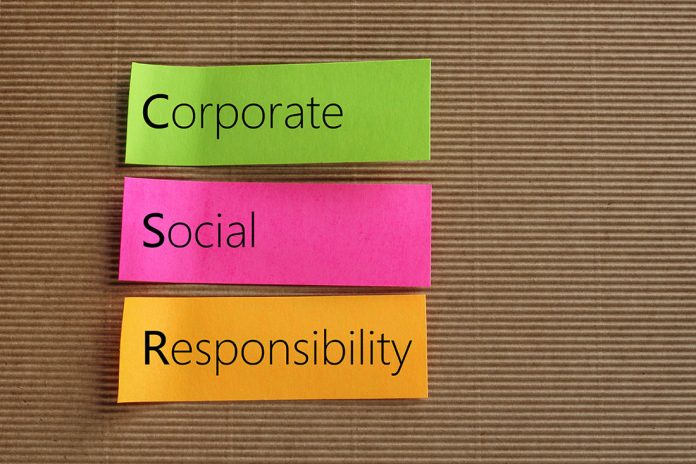Table of Content
In the bustling town of Corporatopia, where business reigns supreme, a new hero rises from the ranks of the daily grind: the HR department. Most think of HR as the sentries of paperwork, vacation days, and team-building activities involving trust fall. But, in the modern era, HR has taken on a much larger role. They’re the orchestrators of Corporate Social Responsibility (CSR) campaigns. Still skeptical? Grab a cup of that break-room coffee, settle in, and prepare to have your corporate socks blown off.
1. HR’s Role: The Strategy Maestros
In the orchestra of business, HR is the conductor, guiding every section to play its part in CSR. Their strategic approach ensures that CSR is not just an add-on but is woven into the very fabric of the company’s business model.
Also Read: The Role Of AI In Restructuring The Workforce
2. Community Connections and Collaborations
HR doesn’t just sit in an ivory tower (or a cubicle). They’re the networkers, making connections with local communities, understanding their needs, and ensuring the company’s CSR efforts are grounded and relevant. So, it’s the HR department’s role to approach potential people and foster connections with organizations which are a potential source of future collaborations. As a result, HR is more like a PR agency that aims to establish relations between potential stakeholders.
3. CSR Ambassadors in Every Department
HR ensures that every department has its CSR champion. These ambassadors are trained to integrate CSR into their day-to-day roles, from marketing to finance to operations. So, HR creates an entire ecosystem, sending vibes of CSR throughout the organization.
4. Beyond the Brochures: Authentic Engagement
Forget those glossy brochures! HR promotes authentic engagement by organizing regular field visits, interaction with beneficiaries, and real-time project monitoring. So, HR ensures that the CSR practice sends a positive note about the organization across all platforms and to all stakeholders.
5. Employee Volunteering: Making CSR Personal
Under HR’s guidance, employees are encouraged to volunteer for causes they’re passionate about, thereby personalizing CSR and fostering deeper commitment. As a result, when employees feel that they are working for a cause they are passionate about, they feel proud relating to an organization that promotes their viewpoint. Consequently, they are likely to remain loyal and promote their organization in a positive light.
6. Skill-Based Volunteering: Maximizing Impact
Not all volunteering is about planting trees. HR identifies the unique skills within their employee pool and matches them with NGOs and causes that can benefit from these specific talents. Thus, by using skilled-based volunteering, HR is able to identify resources which are best suited to particular tasks. Therefore, it’s making the best use of its employees as part of a corporate social responsibility campaign.
7. Feedback and Iteration: The Cycle of Improvement
With regular feedback sessions, HR ensures that the CSR strategy is always improving, adapting, and evolving based on real-world outcomes and employee inputs. As a result, the HR department not only takes feedback from the community but also from its employees. Employees are a better source of what flaws they see in the current policy and what’s a better approach to continue things.
8. Celebrating Small Wins, Aiming for Bigger Goals
Every milestone, no matter how small, is celebrated, ensuring that the momentum for CSR remains high. Yet, HR also ensures the company is always aiming for loftier, more impactful goals.
9. Training the Next Gen of CSR Leaders
Through workshops, seminars, and leadership programs, HR grooms the next generation of CSR leaders, ensuring that the company’s CSR vision is sustainable and future-proof.
10. Setting the Standard: CSR as a Benchmark
HR drives the agenda that CSR is not just an ‘extra’ but a benchmark against which a company’s success is measured. Through rigorous reporting, they ensure transparency and accountability.
11. Global Reach, Local Touch
In an interconnected world, CSR challenges are global. HR ensures that while initiatives might have a global vision, they are localized to have meaningful impacts in every region the company operates. Thus, HR‘s efforts send a unified message about the organization’s efforts throughout the world and across all platforms.
12. Beyond CSR: Moving Towards Corporate Social Innovation
HR pushes the envelope further. It’s not just about responsibility anymore, but innovation. They foster an environment where employees brainstorm solutions for social challenges, turning them into business opportunities. So, HR is initiating corporate social responsibility and providing employees with a platform to showcase their skills.
13. Employee Welfare: The First Step of CSR
True CSR starts at home. HR ensures that the company takes care of its own before reaching out. Be it health, education, or welfare, employees come first. As a result, you’ll see companies taking many employee-friendly initiatives. For example, organizations often host events like family picnics. But that’s just the beginning. Some companies go to extents such as providing education for employee’s children. As a result of these initiatives, employees remain loyal to the company.
14. The 3Ps – People, Planet, Profit
HR ensures that the company’s CSR initiatives strike a balance between these 3Ps, ensuring a holistic approach to social responsibility. Here’s how it goes. Organizations take care of the people who work for them. As a result, they are able to brainstorm new ideas that can give back to the society. Consequently, when people see an organization taking good initiatives, they are more likely to buy from the organization. As a result, the company is able to gain profit.
Also Read: Helping Employees Grow- The Role Of HR In Training Employees For The Future
Conclusion: The Unsung Hero in the Corporate Saga
The next time you pass by your HR department, drop a thank-you note or serenade them with a superhero theme song. Behind every successful CSR initiative, there’s an HR professional meticulously planning, executing, and iterating. In the corporate success story, HR is the silent guardian, the watchful protector, and the unsung hero. Cheers to HR, turning companies into profit-making machines and responsible, global citizens!


